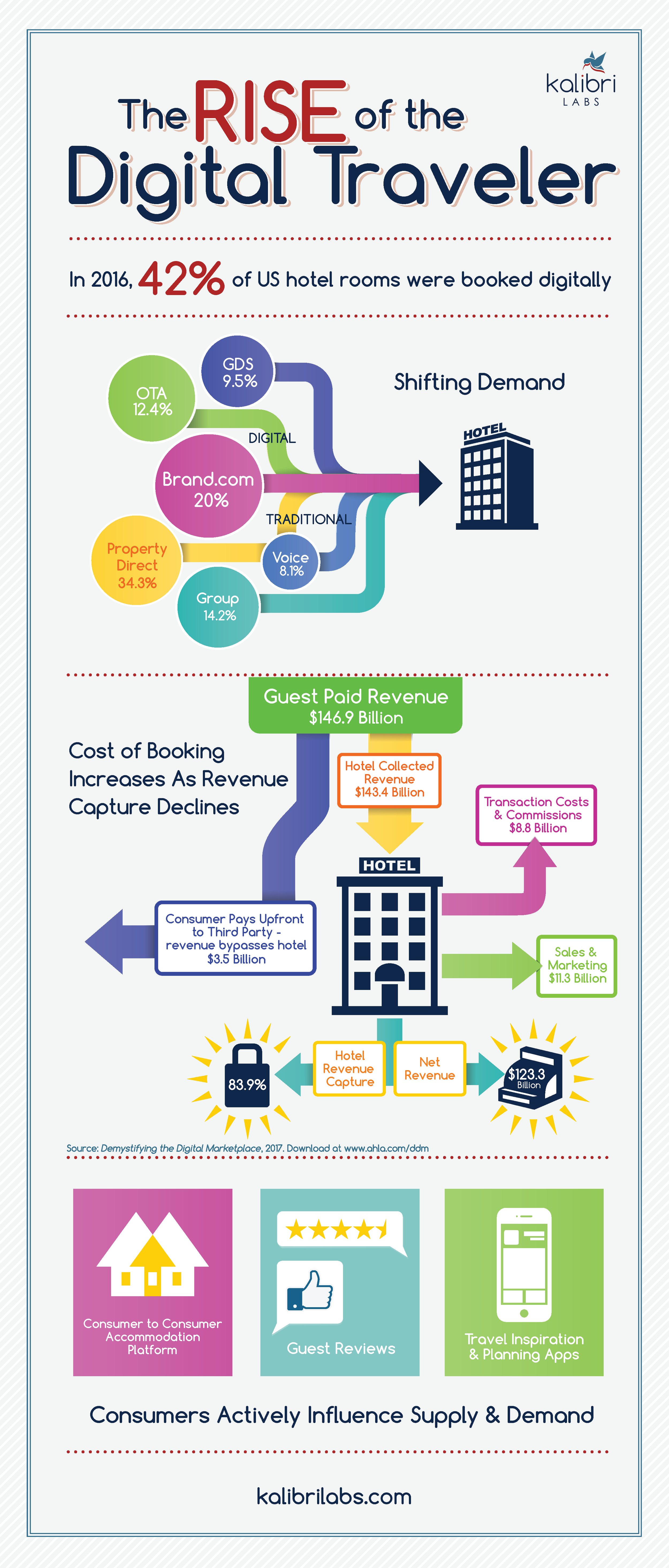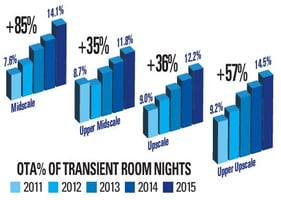By: Cindy Estis Green
Blog
The Rise of the Digital Traveler
By: Kalibri Labs Marketing team
Several key themes emerged from Part 2 of the landmark study, Demystifying the Digital Marketplace: Spotlight on the Hospitality Industry. We outline these takeaways in the infographic and descriptions below. For the full scoop, click here to request access to the full study.

Key Themes
Shifting Demand: Bookings are shifting from traditional Property Direct channels such as walk-ins or voice calls to digital channels, whether that is Brand.com, OTA, or GDS. Property Direct bookings have dropped from 40% of all bookings in 2014 to 34% in 2016. As bookings that transact directly at the property generally bring the highest profit margin, along with the lowest cost of customer acquisition, these room nights that have shifted to other digital channels now carry higher costs of acquisition.
Hoteliers will need to ask themselves several questions going forward to get an idea of the impact of these shifts on their individual properties. For the guests who used to call directly or drive in, how are these guests now booking? Are they going to Brand.com or booking through a third-party? What actions can be taken to drive consumers who may previously have booked directly at the property to book on Brand.com or other direct channels which have a higher profit margin compared to third-party bookings?
Cost of Booking Increases as Revenue Capture Declines: Revenue Capture - or, the percentage of Guest-Paid Revenue that hotels retain after customer acquisition costs are paid – is declining as hotels spend more on commissions and fees to acquire guests through third parties and on sales & marketing expenses.
Overall Revenue Capture for the industry declined from 84.4% in 2015 to 83.9% in 2016. In terms of incremental revenue that would drop to the bottom line, this decline represents $729 million that U.S. hotels could have retained had their collective Revenue Capture percentage remained the same as it was during the prior year. This decline is predicated on increased acquisition costs.
Consumers Actively Influence Supply & Demand: The effect of consumer behavior and the sharing economy on hotels is growing. Consumer to consumer accommodation platforms like Airbnb are increasingly impacting supply, while travel inspiration & planning apps influence guest decisions, and guest reviews sway booking behavior. These all add up to external forces that the industry has never seen before and needs to adjust to.
To dive deeper into the take aways and research, request your code to download Part 2 of Demystifying the Digital Marketplace: Spotlight on the Hospitality Industry here.



